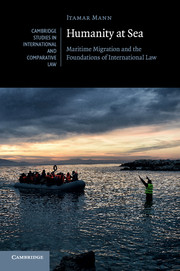Book contents
- Frontmatter
- Dedication
- Epigraph
- Contents
- List of Figures
- Acknowledgments
- Introduction: Humanity Washed Ashore
- 1 Flagless Vessel
- 2 What Is a Human Rights Claim?
- 3 What Is a Human Rights Commitment?
- 4 Between Moral Blackmail and Moral Risk
- 5 The Place Where We Stand
- 6 Imagination and the Human Rights Encounter
- Conclusion: The Dual Foundation of International Law
- Postscript
- Index
- CAMBRIDGE STUDIES IN INTERNATIONAL AND COMPARATIVE LAW
5 - The Place Where We Stand
Published online by Cambridge University Press: 05 September 2016
- Frontmatter
- Dedication
- Epigraph
- Contents
- List of Figures
- Acknowledgments
- Introduction: Humanity Washed Ashore
- 1 Flagless Vessel
- 2 What Is a Human Rights Claim?
- 3 What Is a Human Rights Commitment?
- 4 Between Moral Blackmail and Moral Risk
- 5 The Place Where We Stand
- 6 Imagination and the Human Rights Encounter
- Conclusion: The Dual Foundation of International Law
- Postscript
- Index
- CAMBRIDGE STUDIES IN INTERNATIONAL AND COMPARATIVE LAW
Summary
There may be something disturbingly incomplete, perhaps even misleading, in comparing “a refugee” to “a vessel on the open sea, not sailing under any flag.” This analogy, introduced at the opening of Chapter 1, may suggest that the human rights encounter happens fortuitously. But it would be a mistake to imagine the self suddenly struck by a duty that is both ethical and legal. A crucial question is how power struggles shape the conditions that allow such an encounter to occur or prevent it from occurring in the first place. Previous chapters address this question, though indirectly. Taking on this question requires quite a different analysis from what I offered so far. Such analysis is about the transformations of the environment in which encounters appear or disappear. And it is about the possibility of influencing such transformations. The place where we stand when the human rights encounter occurs is not naturally given. It is manufactured by political and economic power, history, culture, and technology. Fortunes are spent in reshaping it and lives are lost in attempts to reconfigure it. Addressing these structural conditions requires a shift in focus. It cannot be done by considering the human rights encounter from the internal point of view of one of its two parties. The position of an implicated third-party observer, responding to the human rights encounter after it occurred, is also not helpful. To discuss the space where the human rights encounter occurs, it is necessary to try to think of the human rights encounter from an external point of view. Attention must be granted not only to such encounters after they had already occurred. Equally important are those that have not yet taken place or that are yet to take place.
This chapter focuses on two journeys that embarked from Libya and aimed to reach Italy, one in 2009 and the other in 2011. By revisiting these much-discussed cases, the chapter explores the ways in which various actors have in recent years partaken in manufacturing the place where the human rights encounter occurs. This is the place in which the relatively powerless party addresses the relatively powerful one.
- Type
- Chapter
- Information
- Humanity at SeaMaritime Migration and the Foundations of International Law, pp. 163 - 186Publisher: Cambridge University PressPrint publication year: 2016



